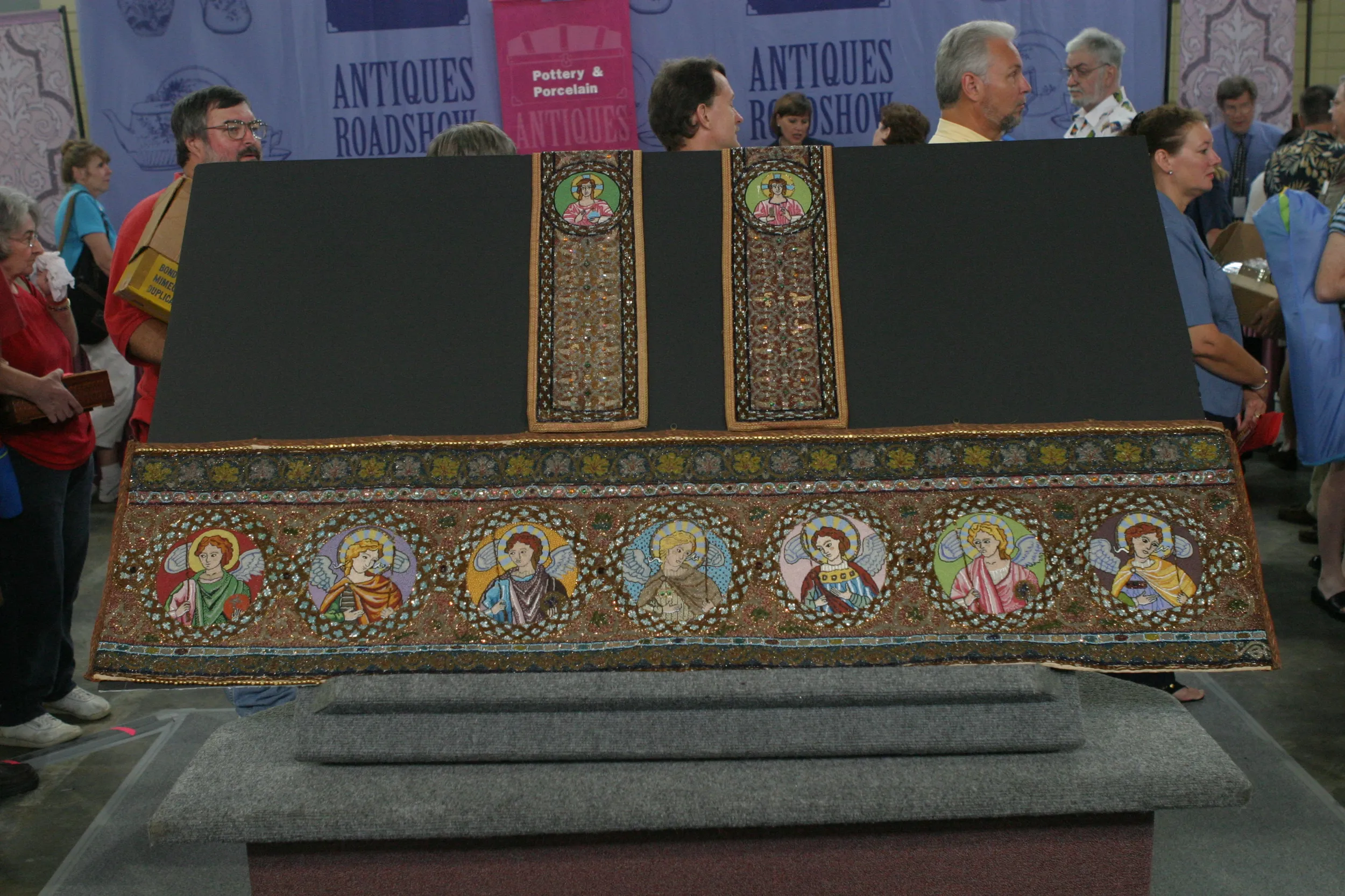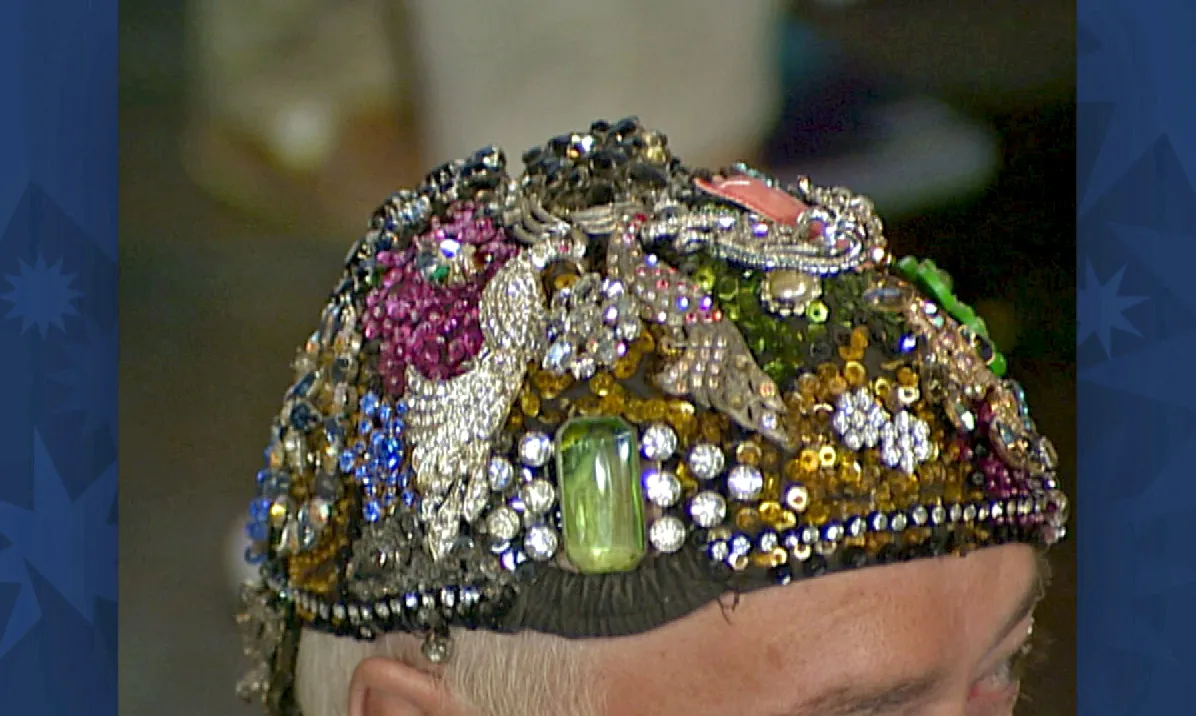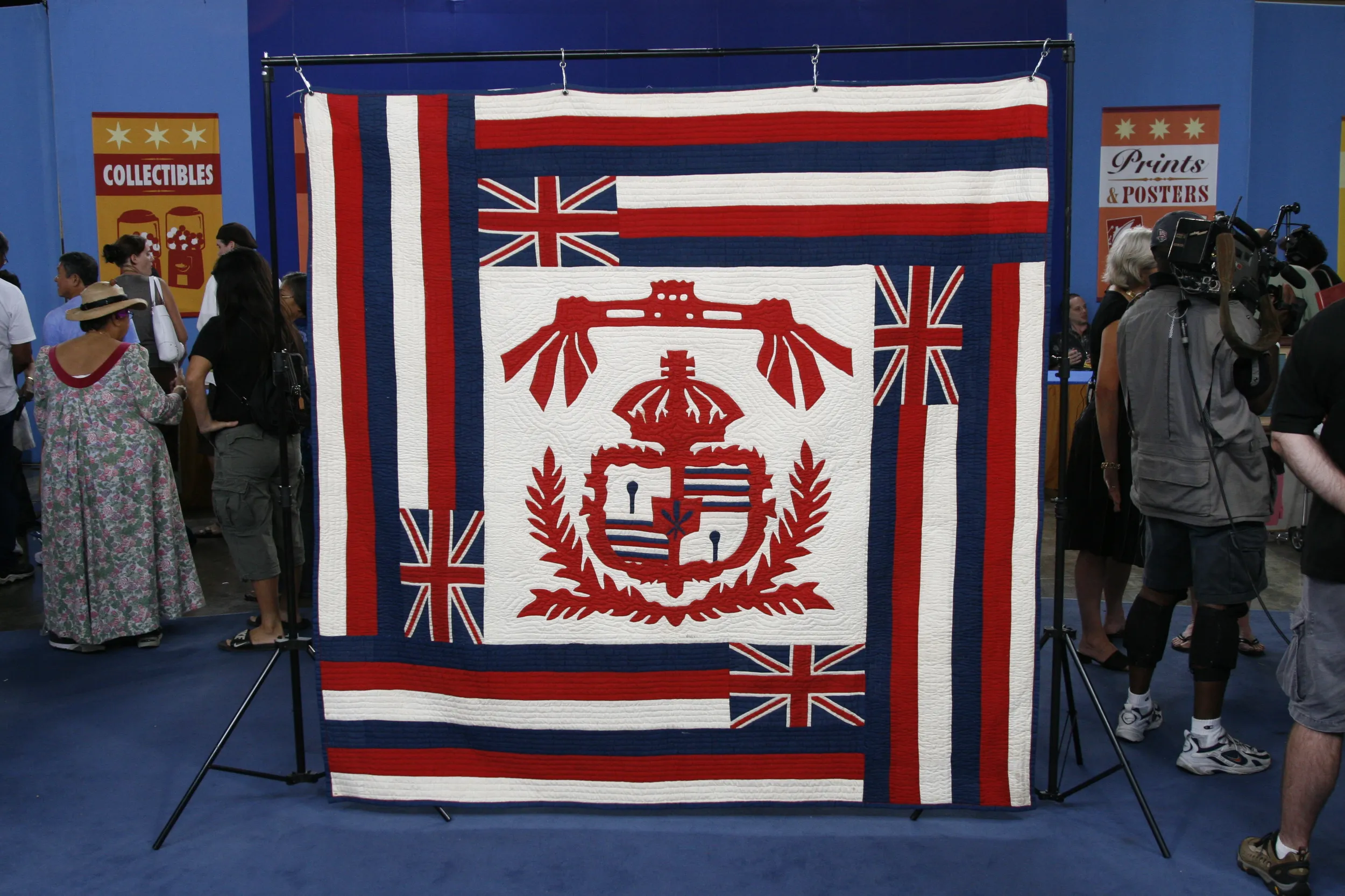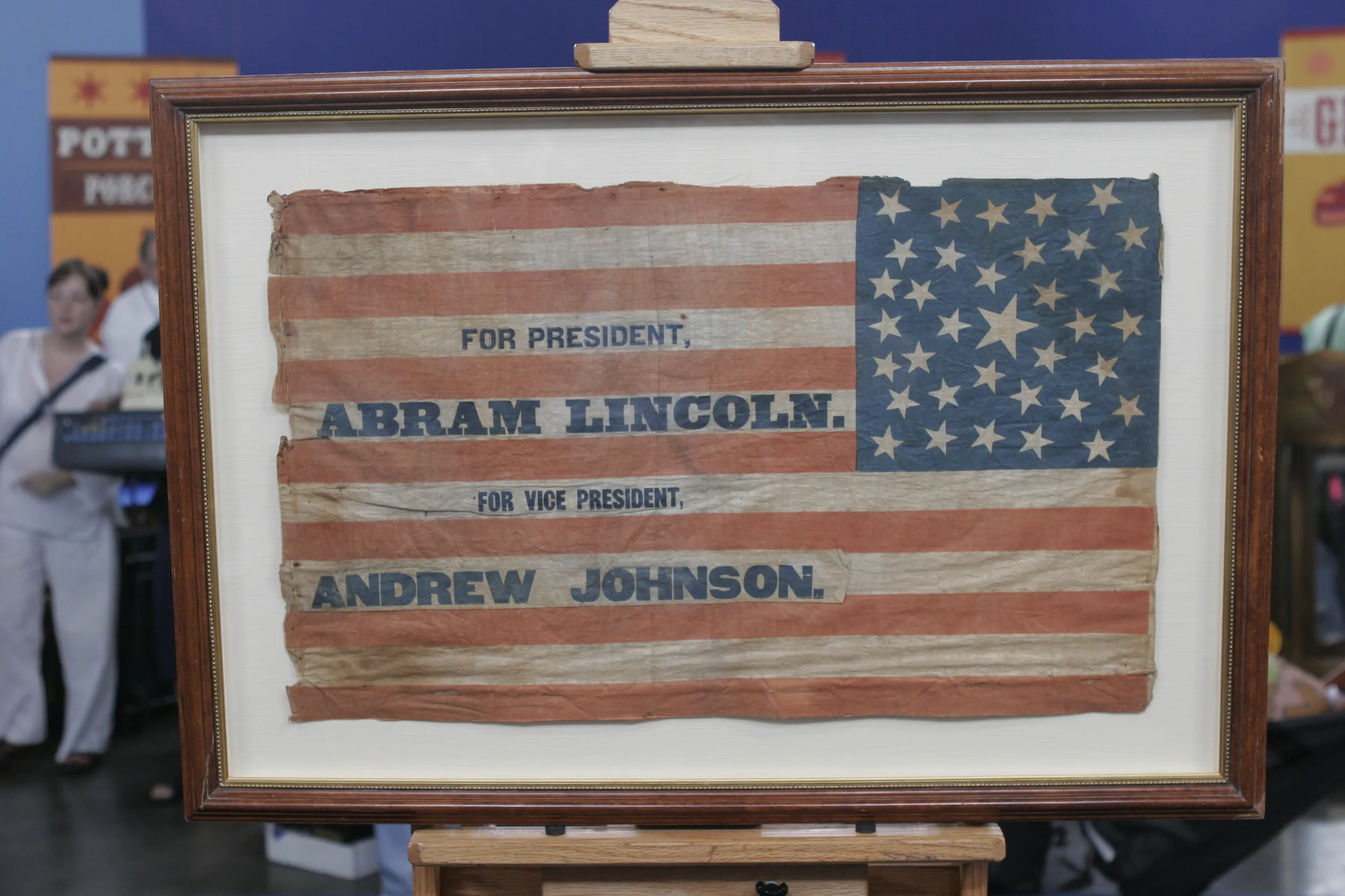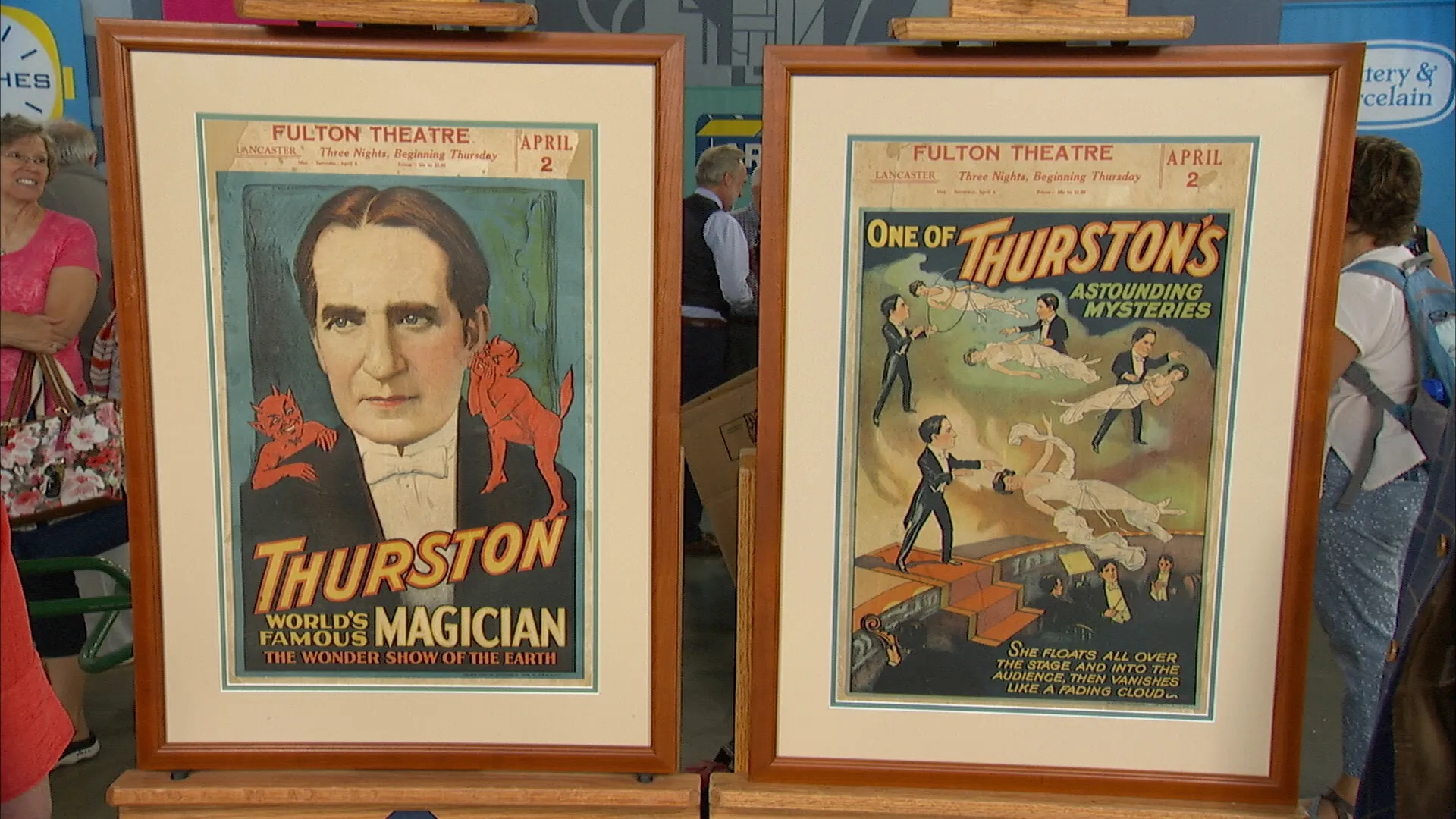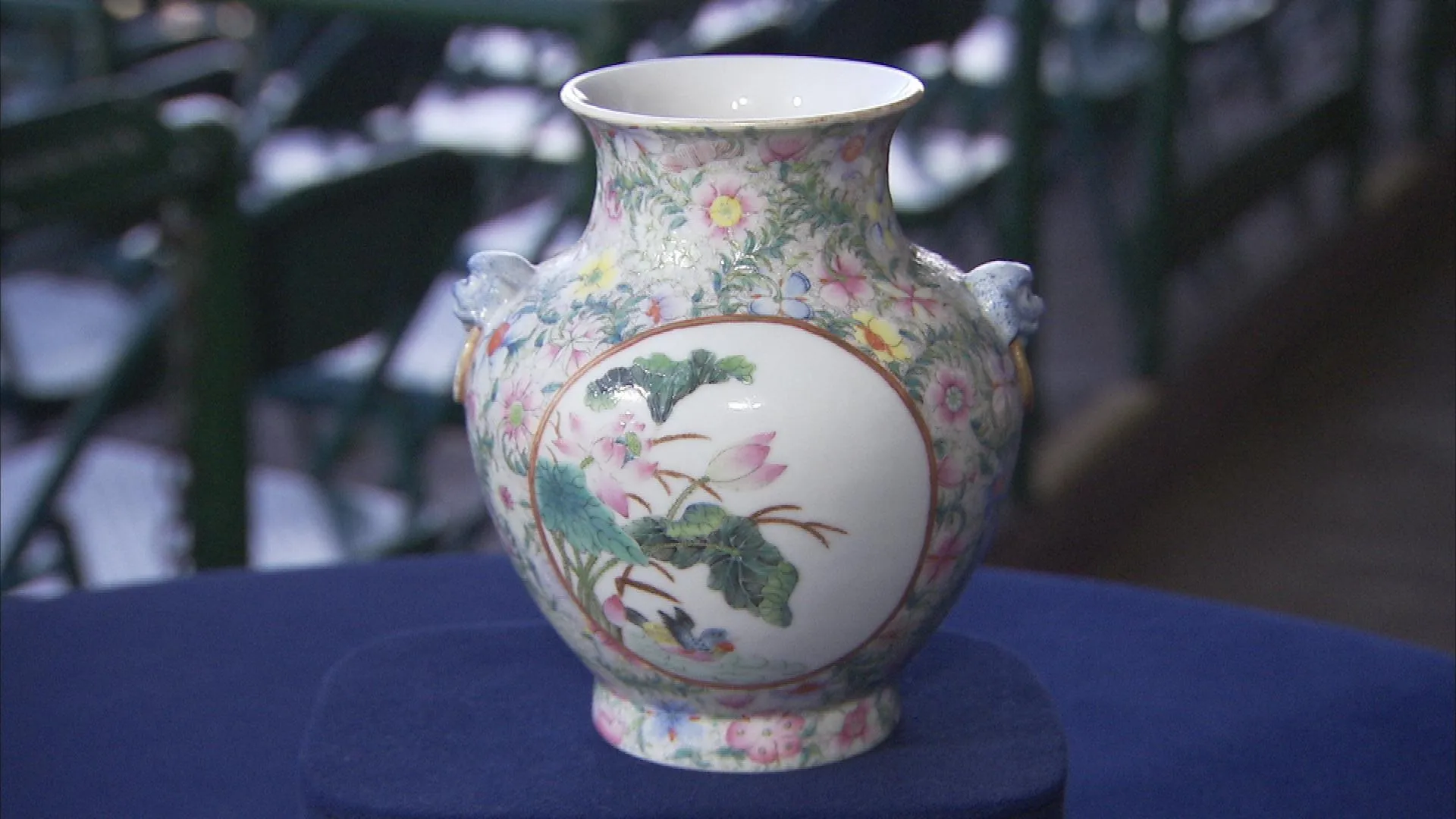GUEST: Well, I have here a political banner that's been handed down through my family. My father's grandmother, my great-grandmother, gave it to him. Her name was Sophronia Lincoln Angell, and her parents were from the Lincoln family, and she collected political memorabilia. Each generation has had a caretaker for it. It's my turn now. The Lincoln family originally split, and one branch of the Lincoln family produced a gentleman by the name of Abraham, and the other...
APPRAISER: I've heard of him.
GUEST: Yes. And the other branch of the family produced me.
APPRAISER: Okay.
GUEST: So...
APPRAISER: Well, this is a piece of campaign memorabilia, campaign ephemera, from the 1844 presidential election of James K. Polk versus Henry Clay. And this was a really fairly tumultuous election. Henry Clay was the candidate for the Whig Party, and this was his third run at the presidency. This was sort of his last chance, now or never. The Whig Party is the ancestor of what we today think of as the Republican Party.
GUEST: Right.
APPRAISER: Your cousin, Abraham Lincoln, was a party man for the Whigs in Illinois around the time of this election. And Polk was the candidate for the Democratic Party.
GUEST: Right.
APPRAISER: Which we today call the Jacksonian Democratic Party. It was the party of Andrew Jackson, and he was very much a candidate in the same mold as Andrew Jackson, really, same platform. The big issues for the 1844 campaign were, first, slavery, and second, Manifest Destiny.
GUEST: Right.
APPRAISER: Polk and the Jacksonian Democrats were in favor of annexing both the Oregon Territory and Texas, and Clay was very much anti-slavery, and in particular, anti-annexation. What's interesting about this banner is that it tells us an awful lot about that election. "Polk & Democracy against Clay & Aristocracy" is leftover Andrew Jackson sloganeering. Andrew Jackson was the first really populist president. He was the one who sort of came up with the idea of the common man versus, uh, these elitist, moneyed snobs. So you can see, even though Polk doesn't have a lot of cachet himself, he's using Andrew Jackson's political rhetoric to get elected. What also I like about this piece is that your... Your great-grandmother, you said? Your grandmother?
GUEST: Great-great-grandmother.
APPRAISER: Your great-great-grandmother made it. So here's a woman who doesn't have the vote, right? But is still incredibly involved in politics...
GUEST: Right.
APPRAISER: ...is a Democrat, whereas your other distant cousin, Abraham Lincoln, would have been part of the Whig Party. So there might have been some fighting...
GUEST: Right.
APPRAISER: ...at, at family reunions. So it's a great political piece of memorabilia. It's also a great piece of Americana. It's on simple cotton muslin. We have these original iron handles, and then your ancestor has stamped her name. She's actually put her signature on this. The piece is hand-lettered. You can actually see the pencil, and the letters are in oil-based paint. It's a really terrific piece. I would put this at auction between $5,000 and $7,000.
GUEST: Oh, great. Great.
APPRAISER: So thanks for bringing it in. It's really great.
GUEST: My pleasure.


